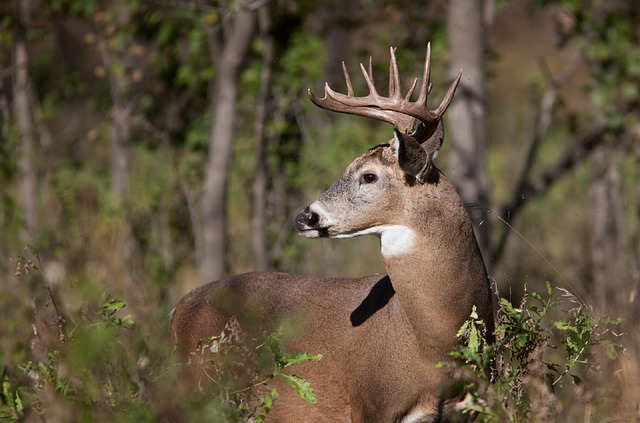
Depending on where you live and what weather forecasting service you listen to, the upcoming winter may be brutal.
Weather predictions can be as variable as the weather itself, but one thing is for sure – temperatures don’t need to drop drastically to inspire unwelcome animals to encroach on your personal space.
Deer can devastate your landscape, rodents can infiltrate your backyard and before you know it you have damage to your yard and home. Wildlife can even put your family’s health at risk; deer are known to harbor disease-carrying ticks and rodent infestations have been associated with respiratory ailments. It pays to take sensible steps to keep unwanted animals away from your home this winter, no matter what the temperature.
Diverting deer
A single deer can consume 1.5 tons of vegetation a year. The number of whitetail deer has tripled in certain states in the past decade, and as other food sources become scarce in fall and winter, hungry deer turn to suburban landscapes for food. Foraging deer can cripple gardens, shrubs and trees, sometimes rendering them unable to weather winter, leaving you with a dead, lifeless landscape in springtime. Deer also carry the ticks that cause Lyme disease.
When winter comes, you don’t want to be spending time in the cold maintaining fences (which often aren’t tall enough to keep deer out), sound and sight deterrent devices (which deer get used to) or even utilizing a chemical based repellent (which can be harmful to humans, pets, wildlife and plants). Instead, opt for a proven effective, all-natural topical spray repellent like Bobbex Deer Repellent.* Available as a ready-to-use spray or concentrate, Bobbex’s taste and smell deterrent won’t wash off in rain or snow, and proved 93 percent effective in independent testing by the Connecticut Agricultural Experiment Station.
Ridding yards of rodents
If you’re a fall gardener, rabbits, squirrels, chipmunks and other herbivores can do more damage to your landscape than frost. Fencing and other types of deterrents like plastic owls often aren’t effective in scaring herbivores away. Bobbex-R Animal Repellent is an all-natural, topical spray that repels small herbivores but is harmless to all wildlife, people, pets and contains no petrochemicals. Rain, snow, hosing and irrigation won’t wash the product off, and you can even use it as a bulb-dip to prevent below-ground foraging. It can also be sprayed at the mouth of burrows and holes to prevent animal re-entry. Bobbex-R will also help protect plantings from reduced moisture content during periods of water reduced weather conditions. In winter, cold weather, blustery winds and frozen soil reduce plants’ ability to absorb much needed moisture to maintain vitality. Bobbex-R provides retention of moisture in plantings through periods of frigid weather, and reduces damage from early fall frost.
Pro-Active Tips to keep critters out of homes
Mice, rats and even raccoons can take up residence inside homes when the weather turns cold. A single rodent in a home can quickly turn into an infestation, damaging walls, belongings and exposing your family to allergens and disease. Removing an infestation can be costly and time-consuming, so it makes sense to be pro-active and try to prevent pests from coming inside in the first place.
Before the weather cools, take a look around your home to find any potential entry points – remember, mice may be able to get in through an opening as small as 1/4 inch – and plug them. Look around doors and windows, pipes throughout the home, fireplaces, attics and crawl spaces, vents and drains. You can do the job yourself or hire a professional to help pest-proof your home.
While you may have to put up with a long, cold, hard winter you certainly don’t have to tolerate unwanted four-legged foes in your home or yard once the weather cools and winter arrives. A combination of the right deterrents and prudent preparations can ensure your environment remains as pest-free as possible this year.
* You may have guessed that www.bobbex.com wrote this article ten years ago! But it’s good advice nevertheless.
